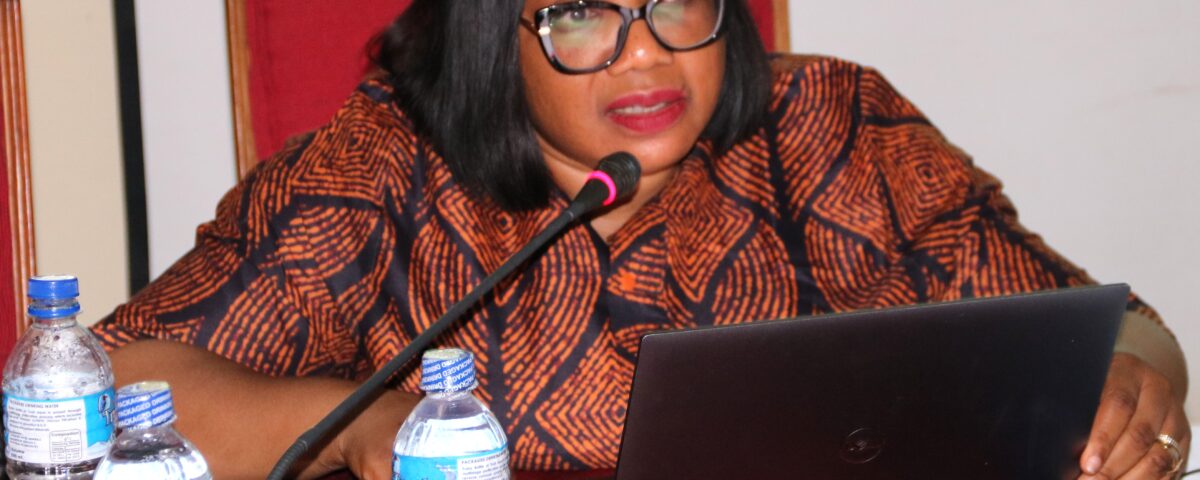Banjul, The Gambia, 15 October 2025 — The Executive Secretary of the African Commission on Human and Peoples’ Rights (ACHPR), Madam Abiola Idowu-Ojo, delivered a comprehensive presentation on how religious and traditional leaders can effectively engage with the African Commission’s mechanisms to promote and protect human rights across Africa. The session formed part of a training organized by the African Centre for Democracy and Human Rights Studies (ACDHRS) for religious and traditional leaders from across the continent.
Madam Idowu-Ojo emphasized that religious and traditional leaders are vital partners in advancing human rights, peace, and justice. Drawing on Article 27 of the African Charter on Human and Peoples’ Rights, she noted that these leaders, through their moral authority and close connection to communities, play a key role in promoting tolerance, resolving conflicts, and safeguarding the dignity of individuals. Their influence at the grassroots level allows them to shape values and behaviors that align with the principles of human rights.
The presentation traced the historical and contemporary importance of such leadership in defending human rights. Referencing examples such as Archbishop Desmond Tutu’s legacy, Madam Idowu-Ojo highlighted how faith-based and traditional figures have long acted as moral compasses, confronting injustice and uniting people around common values of equality and respect.
She outlined the legal framework underpinning religious and traditional rights in the African Charter, pointing to Articles 2, 8, 17, and 18, which guarantee non-discrimination, freedom of religion, cultural participation, and the protection of traditional values consistent with human dignity. These provisions, she explained, affirm Africa’s recognition of diversity and its commitment to peaceful coexistence among various cultural and faith groups.
The Executive Secretary detailed how the African Commission utilizes special mechanisms such as Special Rapporteurs, Working Groups, and Committees to promote and monitor human rights compliance. Mechanisms including the Working Group on Indigenous Populations and Minorities, the Special Rapporteur on Freedom of Expression and Access to Information, and the Special Rapporteur on Human Rights Defenders, were cited as central to addressing issues affecting traditional and religious communities. These bodies conduct fact-finding missions, issue urgent appeals, and engage with states to strengthen protection frameworks across Africa.
Her presentation also revisited landmark cases handled by the African Commission and Court that have advanced the protection of traditional and religious rights. These included the Endorois and Ogiek cases in Kenya, which upheld the rights of indigenous communities to land, culture, and religion, as well as the Hossam Ezzat and Rania Enayet v. Egypt case, which addressed the recognition of the Baha’i faith. Other notable examples were Open Society Justice Initiative v. Côte d’Ivoire, highlighting discrimination against the Dioula Muslim community, and Amnesty International and Others v. Sudan, which exposed religious discrimination in detention facilities.
Madam Idowu-Ojo stressed that while the African Charter safeguards cultural and traditional rights, these rights are not without limits. They must not be used to justify harmful practices or forms of discrimination that undermine equality, dignity, or the rights of women and children. The Commission’s interpretations, she explained, consistently aim to balance the preservation of African traditions with adherence to universal human rights standards.
She further drew attention to a series of ACHPR resolutions, including those on the protection of human rights defenders, cultural heritage, and freedom of religion, that reinforce state obligations to ensure that communities and leaders advocating for cultural and religious rights are protected from intimidation or discrimination.
In her closing, Madam Idowu-Ojo called for stronger engagement between traditional and religious leaders and the African Commission. She urged participants to make full use of the Commission’s communication channels, urgent appeals, and reporting procedures to defend their communities’ rights and ensure that states uphold their obligations under the Charter.
Her presentation reaffirmed the essential role that religious and traditional leaders play as advocates of human rights in Africa, emphasizing that meaningful collaboration with the ACHPR can foster inclusive societies grounded in justice, peace, and respect for human dignity.


